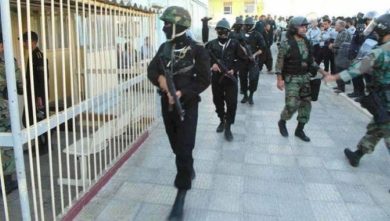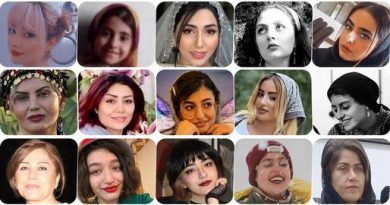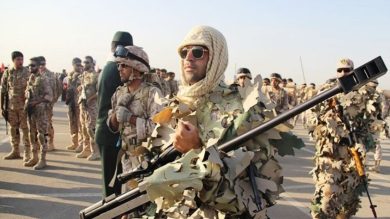In the Islamic Republic of Iran, gender-based repression is not incidental—it is institutional. At the heart of this system is the Islamic Revolutionary Guard Corps (IRGC), a military and intelligence force tasked with defending the Islamic Republic’s ideology and crushing dissent. For Iranian women, the IRGC represents a systemic engine of surveillance, control, and violence.
Over the past four decades, the IRGC has been instrumental in enforcing a gender apartheid system, one that subjects women to legal inferiority, daily harassment, and brutal punishment for noncompliance with state-imposed gender norms. From compulsory hijab laws to violent crackdowns on women-led protests, the IRGC’s tactics are central to sustaining Iran’s patriarchal regime.
This article exposes the tools of repression the IRGC uses to control women and details how Iranian women are resisting, reclaiming their voices, and igniting a global movement.
1. Enforcing Compulsory Hijab: Surveillance and Street Violence
The mandatory hijab is one of the most visible symbols of the Iranian regime’s gender repression. The IRGC, working closely with the morality police (Gasht-e Ershad), enforces hijab laws through:
• Street patrols and public shaming
• Arrests and detentions for “improper” veiling
• Surveillance via CCTV and social media monitoring
• Digital databases tracking “repeat offenders”
The death of Mahsa Amini in September 2022, after being detained for improper hijab, became a turning point. Her murder at the hands of morality enforcers sparked national outrage and led to the “Women, Life, Freedom” uprising. The IRGC responded not with reform, but with military-grade suppression.
2. Controlling Women Through Legal Disempowerment
Iranian women are treated as second-class citizens under the law. The IRGC’s judicial influence ensures that:
• Women’s testimony is worth half a man’s in court.
• Divorce and child custody overwhelmingly favor men.
• Marital rape is legal, and early child marriage is permitted.
• Female employment and travel often require male guardian approval.
The IRGC-backed judiciary targets female lawyers and activists who challenge these laws. Nasrin Sotoudeh, a human rights attorney, was sentenced to 38 years and 148 lashes for defending women arrested over hijab laws.
3. Psychological Warfare: Fear, Surveillance, and Intimidation
The IRGC uses advanced surveillance and psychological tactics to instill fear among women:
• Monitoring phones and social media accounts of activists
• Sending threatening messages or interrogating family members
• Blackmail using hacked private photos
• Stalking and threatening female journalists in and outside Iran
The goal is to deter political participation, silence women’s voices, and fragment movements by making activism feel unsafe.
4. Brutal Crackdowns on Protesters
The IRGC plays a central role in violently suppressing protests, especially those led by women. During the 2022 uprising:
• Thousands of women were beaten, shot, and arrested
• Reports emerged of sexual violence in detention centers
• Protesters faced live ammunition, tear gas, and batons
• Minors were killed for participating or even posting online
These acts are not isolated—they are systemic tools of fear meant to break resistance and reinforce control.
5. Prisons as Sites of Gender-Based Torture
IRGC-controlled prisons like Evin and Qarchak are notorious for:
• Torture and sexual abuse of detainees
• Solitary confinement for weeks or months
• Forced confessions broadcast on state media
• Lack of medical care, sanitary facilities, and legal rights
Women imprisoned for simply attending protests or removing their hijabs endure inhumane conditions designed to dehumanize and punish.
Notable political prisoners like Narges Mohammadi and Sepideh Gholian have written firsthand about their torture, beatings, and endurance inside these facilities.
6. The IRGC’s Role in Censorship and Propaganda
The IRGC controls a vast portion of Iran’s media landscape and heavily censors content related to:
• Women’s rights
• Sexual violence
• Feminist discourse
• Human rights activism
Through state-run TV, newspapers, and online propaganda, the IRGC distorts narratives, portrays activists as traitors, and pushes an image of obedient, veiled women as national ideals.
7. Digital Repression and Cyber Threats
The IRGC’s Cyber Intelligence Unit targets women through:
• Hacking activist accounts and leaking personal data
• Spreading disinformation to discredit women’s movements
• Tracking VPN use and blocking access to secure apps
• Arresting women who post without hijab, dance, or express dissent online
The regime criminalizes digital expression—turning smartphones into evidence against women.
8. Global Impact: Iranian Women Inspiring the World
Despite this intense repression, Iranian women have inspired global solidarity. Protests under the slogan “Women, Life, Freedom” have erupted worldwide, pressuring governments and institutions to act.
International organizations, including the UN, Human Rights Watch, and Amnesty International, have condemned the IRGC’s role in gender-based violence and called for:
• Targeted sanctions on IRGC leaders
• Designation of the IRGC as a terrorist organization by more governments
• Support for digital security tools for activists
• Protection of asylum seekers and political refugees
9. Recommendations: How the World Can Support Iranian Women
• Designate the IRGC as a terrorist organization (if not already done)
• Impose Magnitsky-style sanctions on IRGC officials involved in gender repression
• Fund secure technologies and VPN access for Iranian women
• Elevate Iranian women’s voices in media and international forums
• Provide safe haven and asylum for women fleeing persecution
Conclusion: Resilience in the Face of Repression
The IRGC’s war on women is relentless—but it is also failing. Every act of repression has only strengthened the resolve of Iranian women and expanded the global movement behind them.
Iranian women are not victims. They are leaders, organizers, and symbols of defiance. Their fight is not just for themselves—it is for the soul of a nation.
The tools of repression may be vast, but the will to resist is greater. And the world must choose: stand with the oppressors, or stand with the women who are building a freer future for Iran.
Join Our Newsletter!
Stay informed with the latest updates, news, and ways to take action in the fight for justice and global security. Sign up now to get updates delivered straight to your inbox!




